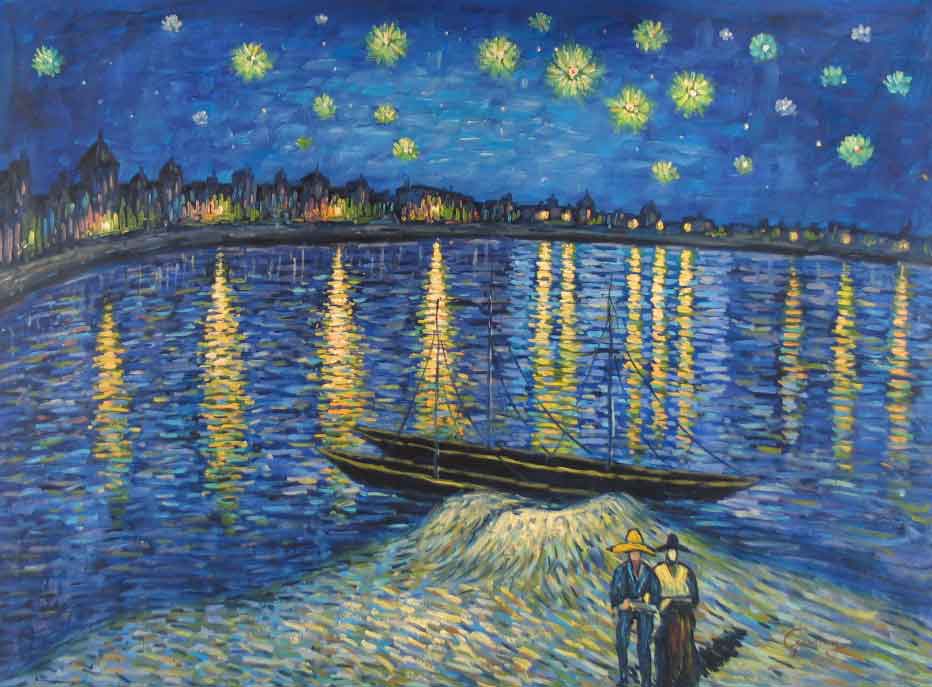Spiritual Sunday
Neurologist Oliver Sacks, famous for The Man Who Mistook His Wife for a Hat and other works, is dying of a metastasized ocular melanoma. In a beautiful New York Times essay he quotes Milton as he talks about how he has rediscovered an early fascination with the physical sciences. Exploring Milton’s passage enhances the poignancy of Sacks’s observations.
First, a personal note. My father too, in his final years, became fascinated by physics and was excited about the Lucerne centrifuge and the discovery of the Higgs Bosun. He had planned to major in physics before he was drafted into World War II, but upon his return he opted instead for French literature. Sacks helps me understand why he returned to the inert world at the end of his life:
I have tended since early boyhood to deal with loss — losing people dear to me — by turning to the nonhuman. When I was sent away to a boarding school as a child of 6, at the outset of the Second World War, numbers became my friends; when I returned to London at 10, the elements and the periodic table became my companions. Times of stress throughout my life have led me to turn, or return, to the physical sciences, a world where there is no life, but also no death.
And now, at this juncture, when death is no longer an abstract concept, but a presence — an all-too-close, not-to-be-denied presence — I am again surrounding myself, as I did when I was a boy, with metals and minerals, little emblems of eternity. At one end of my writing table, I have element 81 in a charming box, sent to me by element-friends in England: It says, “Happy Thallium Birthday,”a souvenir of my 81st birthday last July; then, a realm devoted to lead, element 82, for my just celebrated 82nd birthday earlier this month. Here, too, is a little lead casket, containing element 90, thorium, crystalline thorium, as beautiful as diamonds, and, of course, radioactive — hence the lead casket.
The Milton allusion occurs after Sacks has been lamenting that he will never see the revolution, predicted by Nobel-prize winning Frank Wilczek, where nuclear physics will reach “the level of precision and versatility that atomic physics has already achieved.” The thought leads him to describe a recent encounter with a night sky:
A few weeks ago, in the country, far from the lights of the city, I saw the entire sky “powdered with stars” (in Milton’s words); such a sky, I imagined, could be seen only on high, dry plateaus like that of Atacama in Chile (where some of the world’s most powerful telescopes are). It was this celestial splendor that suddenly made me realize how little time, how little life, I had left. My sense of the heavens’ beauty, of eternity, was inseparably mixed for me with a sense of transience — and death.
I told my friends Kate and Allen, “I would like to see such a sky again when I am dying.”
“We’ll wheel you outside,” they said.
I have been comforted, since I wrote in February about having metastatic cancer, by the hundreds of letters I have received, the expressions of love and appreciation, and the sense that (despite everything) I may have lived a good and useful life. I remain very glad and grateful for all this — yet none of it hits me as did that night sky full of stars.
The Milton passage occurs when the Archangel Raphael is explaining to Adam how God made the heavens. There are several references to stars in his account. Raphael mentions how God
sowed with stars the Heaven thick as a field
and how one can see a
thousand thousand stars…spangling the hemisphere.
Raphael goes on to describe the rest of creation but then returns to the stars. The departure and return is a bit like the way that both Sacks and my father left their early fascination with the physical sciences to enter the mysteries of the human brain and heart, only to return to the impersonal heavens at the end. In Book VII we see God involved in the intricate work of creating animals and humans, after which he returns to heaven. Close-up gives way to long shot as God is welcomed back to heaven by ten thousand angel harps. Henceforth, Raphael tells Adam, God will visit humankind traveling a road paved with stars:
A broad and ample road, whose dust is gold
And pavement stars, as stars to thee appear,
Seen in the galaxy, that milky way,
Which nightly, as a circling zone, thou seest
Powdered with stars.
Sacks does not speak in religious terms and my father was a professed atheist. Yet in the wonders of the cosmos, poetically described by Milton and scientifically charted by our great physicists and astronomers, they get a sense that they are part of some great process. “God” is the image that Milton uses while Sacks talks of a “sense of the heavens’ beauty, of eternity.” As we approach death, the little things fall away and we confront the unknowable heavens.
Or as Sacks puts it, none of his early accomplishments or the plaudits from his fellow humans hit him as hard as “that night sky full of stars.”



One Trackback
[…] Dying and a Night Powdered with Stars […]